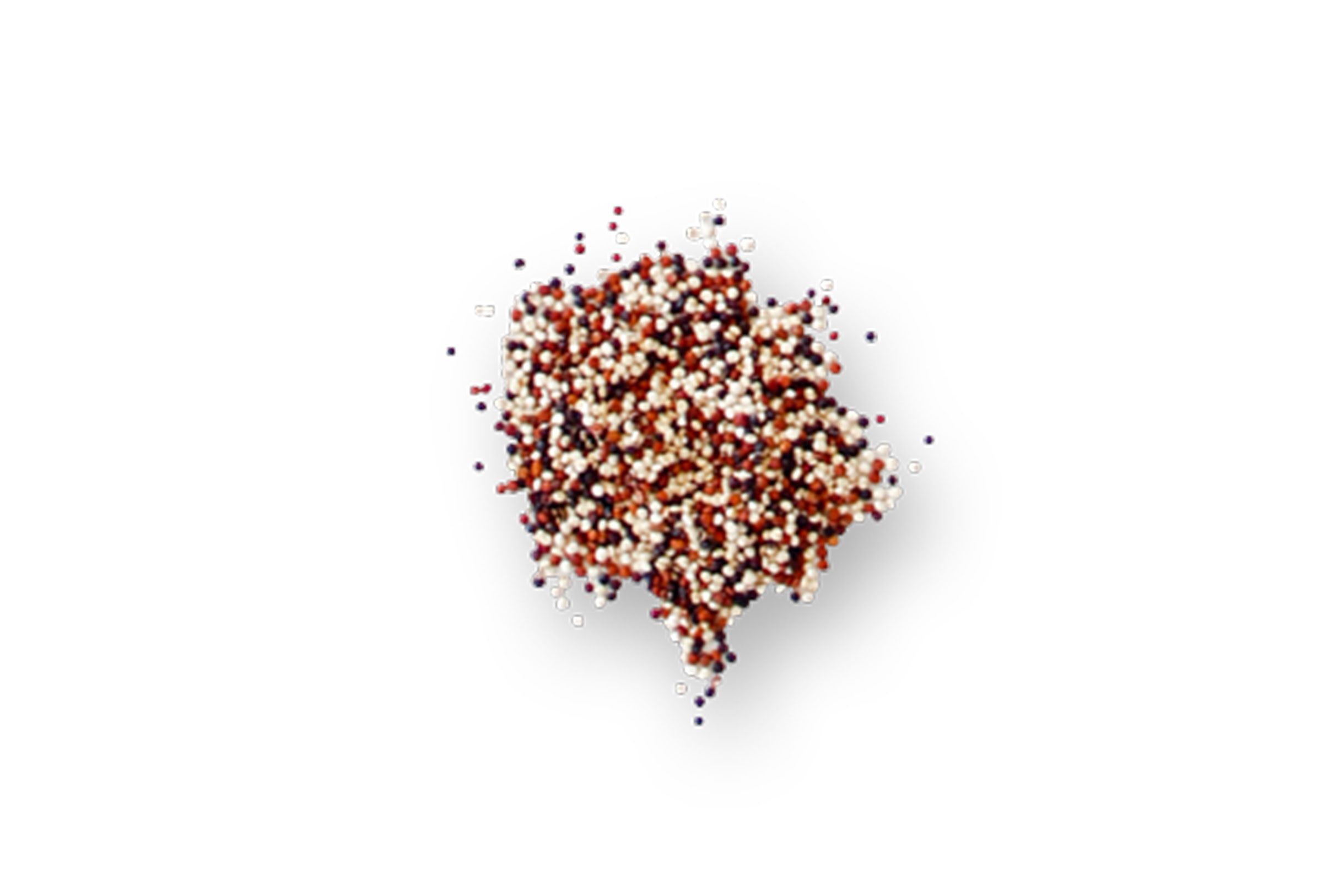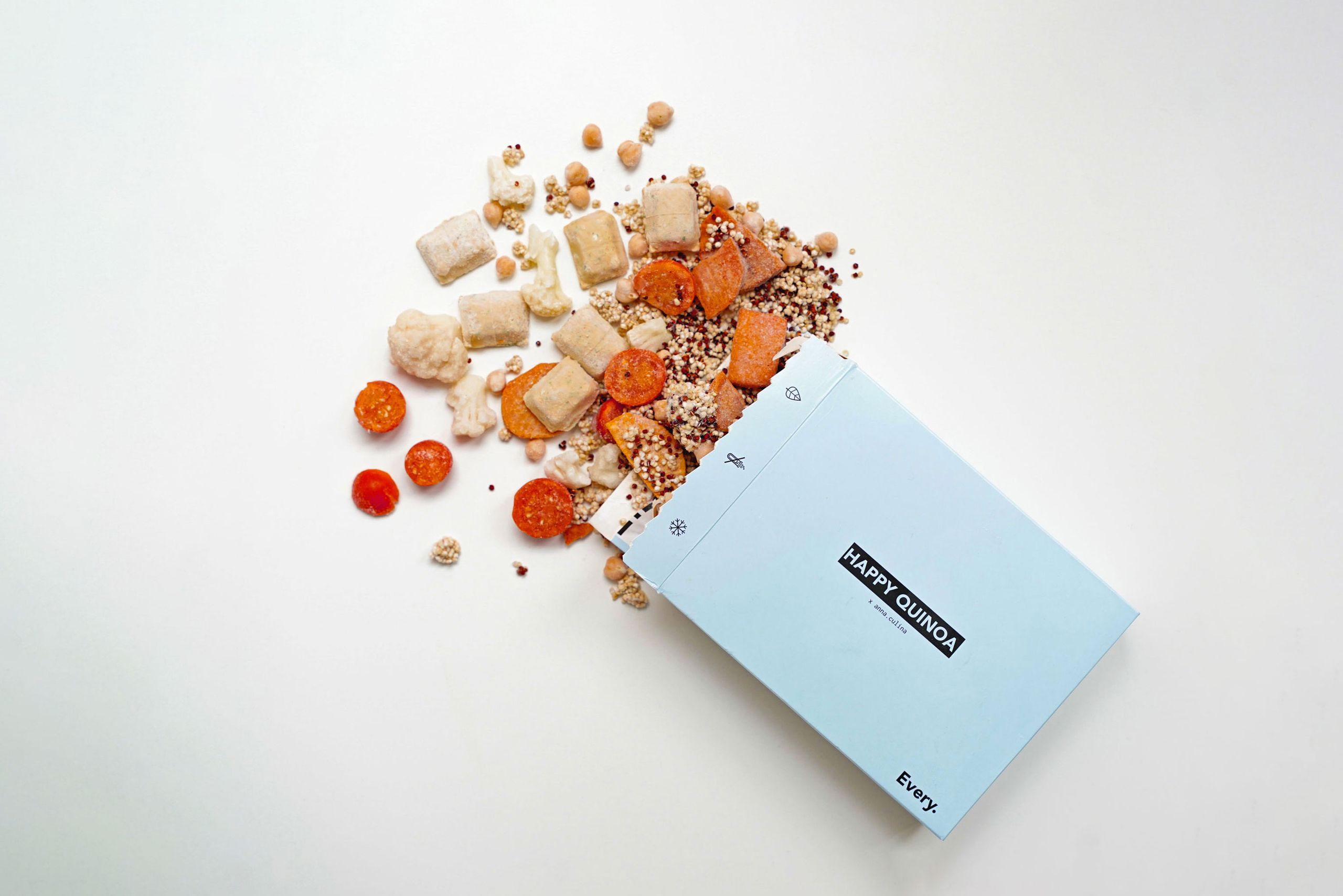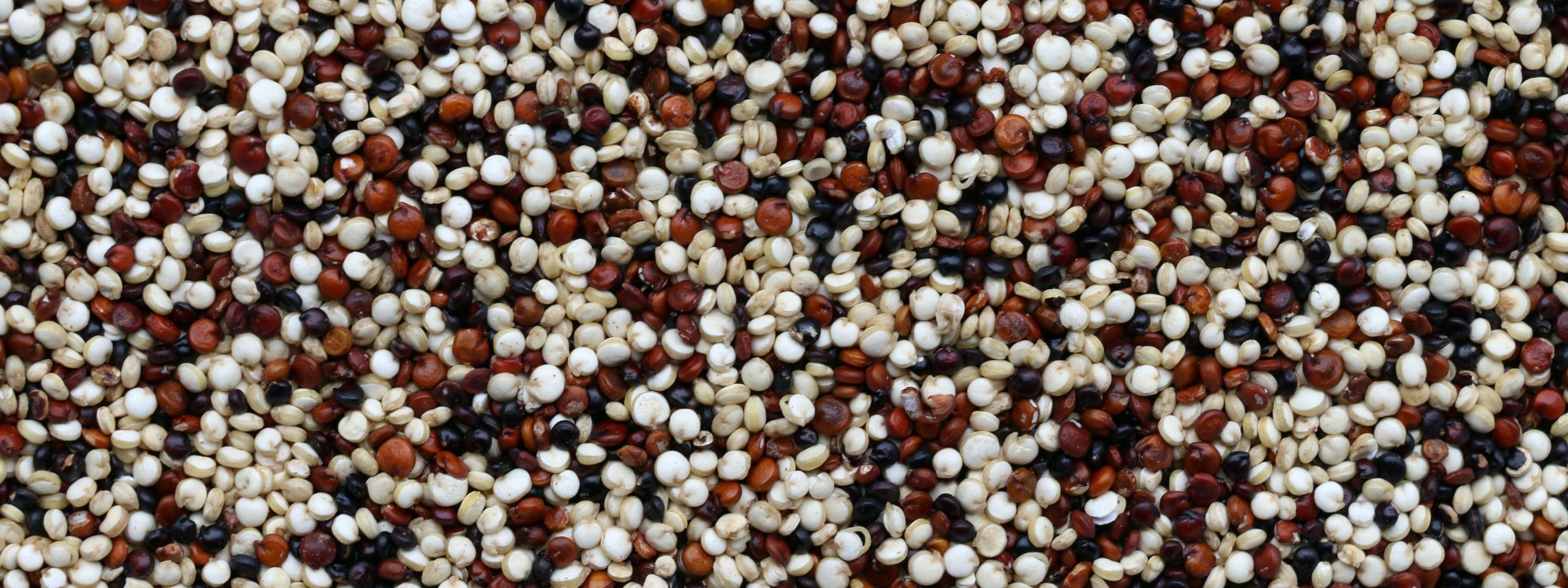Quinoa
Trendy Superfood
Intro
"The mother of all cereals" Even the Incas appreciated the little health packets on their menu. In 2013, it was named Food of the Year.
Here we reveal why quinoa is called a pseudocereal and why it has become such a food trend, plus more on possible ways to prepare it.

What is quinoa?
Quinoa is a pseudocereal belonging to the goosefoot genus and the foxtail family (Amaranthaceae). Cultivation of quinoa is pretty simple and is prepared like most grains. However, its closest relative is not a grain, but in fact spinach. A grain of quinoa grows to about 1-2mm in size.
Quinoa has been a staple in many diets, for over 4000 years and often used as a replacement for corn. This small superfood ist easy to digest and promotes gut health thanks to its high fibre content. Its complex carbohydrate chains makes it an effective blood sugar and cholesterol regulator. A good portion of quinoa will keep you feeling full. Its also a good source of natural, plant based protein.
Quinoa is naturally gluten free and therefore suitable for people with celiacs disease or other gluten intolerances. It is sometimes also used as a healing property.

Where does quinoa come from?
Quinoa has been grown in South America for more than 4000 years.
Which varieties are there?
The over 120 quinoa types can be categorised according to colour:
White/pale yellow
-Flavour: mild-nutty
-Low fat content
-Cooking time: 10-15 minutes
Yellow
-Flavour: mild-nutty
-Low fat content
-Cooking time: 10-15 minutes
Red
-Flavour: aromatic
-Texture: grainy
-Cooking time: 15-20 minutes
Black
-Flavour: earthy
-Texture: harder than red quinoa
-High concentration of secondary plant substances, very antioxidative
-Cooking time: 15-20 minutes
The colour is in correlation with the secondary plant substances.
When is quinoa in season?
Quinoa grows once a year and is usually planted between early and mid April. The harvest is usually in September. Quinoa is very weather resistant.
How to prepare quinoa:
Combine quinoa and water with a ratio of 1:2. Bring to a boil and then let simmer until all the water has been absorbed. Let sit for 5 minutes and use a fork to ‘fluff’ up the quinoa.
Quinoa is great in:
Salads, soups, bowls, mueslis, granola, porridge, baked goods or as a rice alternative.
Don't overcook the quinoa as you will lose valuable nutrients.
Tip:
meal prepping is easy with quinoa. Simply make a large portion, store it in the fridge, and use it for your meals for the upcoming days.
Quinoa nutrition facts per 100g:
| Typical Values | 100g |
|---|---|
| Calories | 374 |
| Fat | 5.8g |
| Carbohydrates | 69g |
| Fibre | 6g |
| Sugar | 0g |
| Protein | 13g |
Nutrients found in Quinoa:
Flavonoids, Phenolic acid, Terpenoids, Saponins and Steroids
Vitamins:
Folic acid, Beta-Carotene, Vitamin A, Vitamin B (B1, B2, B3, B5, B6, B7, B9, B12), Vitamin C, Vitamin E, Vitamin K and Nicotinamid
Minerals:
Calcium, Chloride, Iron, Potassium, Copper, Magnesium, Manganese, Sodium, Phosphorus and Zinc

